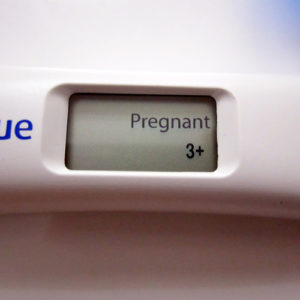The debate has been raging on for the last few years; is vaping safe? Many health professionals have raised concerns about the safety of vaping, due to the limited research that has been done on the effects of these artificial chemicals on human health. One of the most concerning issues is the potential impacts to fertility and pregnancy.
So, does vaping reduce your chances of getting pregnant? Unfortunately, the answer is not clear-cut. While there is still limited research on the subject, some studies have suggested that vaping can have a negative effect on fertility.
One study found that e-cigarettes contain a range of toxins and chemicals known to interfere with a woman’s reproductive health. This includes formaldehyde, which is linked to problems with ovulation, as well as nicotine, which is known to reduce reproductive success. This same study found that in comparison to non-smokers, women who vaped were more likely to experience infertility, early menopause, and an increased risk of miscarriage.
Infertility isn’t only caused by nicotine in e-cigarettes, according to University College London scientists. A woman’s ability to conceive can also be affected by the flavouring in vape liquids. Researchers studied 20 liquid refills in 9 flavours. According to the study, sperm can be damaged by vape liquids that contain water, flavouring, nicotine, propylene glycol, and vegetable glycerin. Testicular cells were damaged by bubblegum-flavoured liquid.
The flavoured vape liquid has an impact on sperm motility causing sperm to struggle to move towards the egg. It might also decrease sperm count. This suggests that even if conception occurs, a woman faces a higher risk of miscarriage. Experts think chemicals in vape flavorings pose a threat to sperm, as these substances have proven toxic to humans. The flavoring products often sourced from China, contain coumarin, a cheaper alternative to cinnamon bark. This means that, even if a woman is able to get pregnant, there is an increased chance of her not being able to sustain a pregnancy.
Vaping and Male Fertility: A Double-Edged Sword
While much of the focus has been on women’s fertility, vaping also impacts men’s reproductive health. Recent studies suggest that e-cigarette use can significantly reduce sperm count and motility.
One shocking finding? Men who vaped daily had a whopping 50% lower sperm count compared to non-vapers. But it’s not just about quantity – quality matters too. Researchers found that vaping altered sperm DNA, potentially leading to genetic issues in offspring.
Here’s the kicker: even “nicotine-free” vapes aren’t off the hook. Those trendy fruity flavours? They’re packed with chemicals that can wreak havoc on testicular function.
So, fellas, if you’re planning on starting a family, you might want to think twice before taking that next puff. Your future kids will thank you.
Remember, when it comes to fertility, it takes two to tango. Both partners need to be mindful of their habits for the best shot at conception.
Millions of Brits Addicted to Vaping, Survey Reveals
A recent survey conducted by ITV and the UK Addiction Treatment Group has revealed worrying statistics about the rise of vaping addiction in Britain. An estimated 5.1 million adults now vape every day, with the majority doing so multiple times per day.
Over half of the daily vapers were women — around 2.6 million. Alarmingly, nearly 400,000 of the women who vape daily were pregnant.
The survey showed vaping has become popular across all age groups. Over 1 million daily vapers were aged 40-49, while over 850,000 were aged 18-24.
Rising Addiction
More and more people are struggling to quit vapes and are seeking professional help. Paul Barker from the Allen Carr stop smoking organisation reported that 5 years ago, around 10% who sought help were vapers, usually who also smoked cigarettes. Now over 20% are vapers, with many having never smoked and started on vaping instead.
Ann Pybus shared her story struggling with vape addiction. Although she had switched from cigarettes, she ended up vaping a full vape per day for 2 years, saying “it was a lot worse than smoking”. Despite trying to quit solo, she became dependent on vaping and had to get professional support to finally stop.
Health Concerns
As vaping is still relatively new, there is no long-term health data. But health experts are questioning the safety of inhaling unknown chemicals. While vapes are likely less harmful than tobacco, Professor Caitlin Notley highlighted concerns about non-smokers taking up vaping amidst the uncertainty about long-term impacts.
The rise in vape addiction, especially among pregnant women and youth, raises worries. Kane started vaping due to stress despite never smoking. He admitted “I would say I’m addicted” and shared how easy it was to over-use vapes.
While vapes may help some cigarette smokers, health experts warn about the addictiveness for never-smokers. More research is still needed to determine the long-term health consequences as vaping continues rapid growth in Britain.
Overall, there is still a lot that is unknown about the long-term effects of vaping on fertility. While more research is needed to draw any definitive conclusions, based on the current evidence it is clear that vaping can be detrimental to reproductive health. Therefore, if you are trying to conceive, it is important to think carefully about whether you should be vaping
Photo by Anthony Cunningham for Zoom Baby
Zoom Baby is a leading supplier of Pregnancy Tests and Ovulation Test Kits





